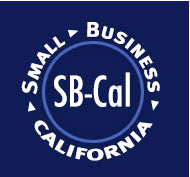Small Business California and
especially Lori Kammerer our Government Affairs person worked hard to get
AB1124 passed by the legislature and signed by the Governor. I would also
like to acknowledge Christine Baker the Director of
Industrial Relations for all her work in bringing all the stakeholders
together. Please see below press release by Assemblyman Perea.
The Governor has a few more days
to sign or veto bills. We have a number of bills pending and are watching
closely. I will be sending out an email listing the results of bills we have
been supporting and opposing.
Scott
Hauge
President
Small Business
California
2311 Taraval Street
San Francisco, CA 94116
shauge@cal-insure.com
415-680-2188
FOR IMMEDIATE RELEASE
Contact: Alicia Isaacs, (916) 224-8488
October 6, 2015
Governor Brown Signs
Perea Bill Creating
Workers’ Compensation
Drug Formulary
SACRAMENTO – Today, Governor Jerry Brown signed Assemblymember Henry T.
Perea’s (D-Fresno) Assembly Bill (AB) 1124 into law. AB 1124 will establish a
prescription drug formulary in California’s workers’ compensation system. This
bill will save the California workers’ compensation system up to $420 million
while ensuring injured workers get the necessary level of care that would help
them get back to work.
“A drug formulary in California will ensure our
workers are provided with safe and effective care to get them back to work
while reducing unnecessary costs and saving California hundreds of millions of
dollars,” said Assemblymember Perea. “I applaud Governor Brown for signing this
important measure into law.”
“We are pleased that
this legislation will help ensure injured workers receive evidence based and
appropriate pharmaceuticals at a reasonable cost,” said Christine Baker,
Director Department of Industrial Relations.
“AB 1124 will reduce
unnecessary costs within the workers’ compensation system while specifically
protecting an injured worker’s right to any medically necessary prescription
drugs,” said Mitch Seaman of the California Labor Federation. “In addition, the
bill guarantees timely formulary updates as new drugs become available and a
phased implementation for workers injured prior to the bill’s effective date.
We applaud the work of the author, the Department of Industrial Relations, and
the broad coalition of workers’ compensation stakeholders, and we look forward
to remaining closely involved as the formulary works its way through the
regulatory process.”
“On behalf of small
businesses across California, we applaud both Assemblymember Henry Perea and
Governor Jerry Brown in taking the concept of a work comp drug formulary and
actually creating law. We believe this is a huge step forward in a
multi-pronged strategy to address the misuse and abuse of prescription drugs,”
said Scott Hauge, President, Small Business California.
“The California
Chamber of Commerce commends Assemblymember Perea for his leadership in
creating a safer and more efficient workers’ compensation system,” said Jeremy
Merz of the California Chamber of Commerce. “By creating a prescription
medication formulary, AB 1124 will provide effective and evidence-based
treatment for injured workers while reducing delays and medical disputes.
This legislation furthers the goal of a balanced workers compensation system
that provides timely benefits to injured workers and minimizes friction in the
system.”
“The American
Insurance Association (AIA) is pleased to support AB 1124 and the adoption
of a workers' compensation drug formulary. An effective formulary
will assist in injured workers' medical outcomes, lesson system friction
and provide for savings. Formularies have been adopted in other states,
and have proven to be effective in the managed care setting,” said Steve
Suchil, Assistant Vice President/Counsel, State Affairs Western Region, (AIA).
“Assembly Member Perea and his staff worked hard to convene meetings with
affected parties and consider various points of view. Passage of AB
1124 is another significant step in improving the
workers' compensation system.”
“Congratulations to
Assemblymember Perea and Governor Brown in making AB 1124 law. California’s
upcoming drug formulary should result in prescribing behavior changes away from
dangerous prescription drugs and combinations of drugs to more clinically
appropriate means of managing chronic pain. If the injured worker wins by
getting better care faster, then all other stakeholders also win,” said Mark
Pew, Senior Vice President, PRIUM.
###
Thank you,
Jose G. Torres
Legislative Aide
Office of Asm. Henry T. Perea, 31st
A.D.
State Capitol, Room 3120
Sacramento, CA 95814
Phone: (916) 319-2031
Fax: (916) 319-2131
.jpg)

.jpg)

.jpg)


